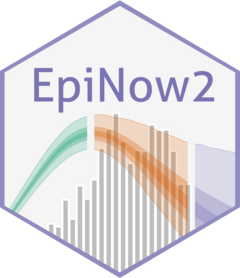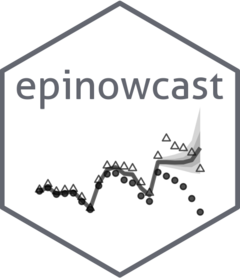Software & Teaching
Below is a summary of my open source contributions. Find my GitHub page here.
I also review open-source R code and packages for journals like the Journal of Open Source Software.
Do reach out if you need my services.
Open-Source Software
I lead and contribute to several open-source communities developing R packages for outbreak analytics. You can explore all my code on GitHub.
Epiverse TRACE
During my time as a Research Software Engineer with the Epiverse-TRACE Initiative, I:
epiforecasts community
I contribute to:
EpiNow2: Estimates the time-varying reproduction number, growth rate, and doubling time using a range of open-source tools and Bayesian methods
scoringutils: Tools for scoring and assessing predictions
epinowcast community
I contribute to:
- epinowcast: Provides flexible and efficient methods for gaining situational awareness during outbreaks using currently available epidemiological observations and the reporting patterns of historical observations
The Carpentries
I briefly co-maintained the Carpentries course on Data Analysis and Visualization in R for Ecologists
Teaching & Outreach
Current Teaching
I am the lead facilitator for the Modelling for Pandemic Preparedness and Response (MPPR) modular shortcourse hosted by The German-West African Centre for Global Health and Pandemic Prevention (G-WAC) at the College of Health Sciences, Kwame Nkrumah University of Science and Technology (KNUST), Kumasi, Ghana.
Course Objectives/Learning Outcomes:
At the end of the course, participants are expected to:
- Understand the concepts of infectious disease transmission and control
- Enhance knowledge about data sources, data access, and data curation in (West) Africa
- Design, implement and use context-specific mathematical models using the R programming language
- Improve knowledge of communication about modeling output
- Become part of a network of disease modelers with an interest in West Africa
We have successfully delivered two iterations of this course in 2024 and 2025.
I also maintain a YouTube channel with over 3,500 subscribers, featuring tutorials like this Mendeley tutorial with over 36,000 views.
Teaching Competencies
- Mathematical/statistical/dynamical modeling of infectious diseases
- Introduction to Compartmental Models including methods for estimating the basic reproduction number. See example materials.
- Model fitting techniques. See example materials.
- Basics of branching process models for infectious disease modelling
- Introduction to Bayesian Models for Infectious Disease Forecasting
- Developing generative Bayesian models for forecasting infectious diseases
- Forecast evaluation using metrics such as Proper Scoring Rules
- Reproducible data analysis workflows
- R programming from the basics to advanced topics (package development, object-oriented programming)
- Research software/code development best practices
- Git/GitHub from the basics to intermediate/advanced (merging and rebasing, cherry-picking, etc.)
- R package development using software engineering industry standards
- Pipeline orchestration with GNU make and the targets R package
- Reproducible environments and research code portability (docker, renv, etc)
- Evidence synthesis
- Systematic/scoping review methods and free automation tools like Rayyan. See my YouTube tutorials
- Thesis and journal article writing techniques
Previous Teaching Experience
- Short course on Introduction to R: Management, Exploration, and Communication of Data at the DSI-NRF Centre of Excellence in Epidemiological Modelling and Analysis (SACEMA) at Stellenbosch University, South Africa

